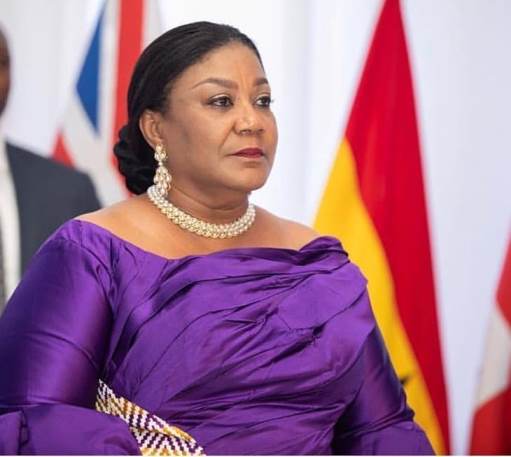The Director of Communications at the Presidency, Eugene Arhin, has called out the Trade Union Congress, TUC, for claiming that the First and Second Ladies; Rebecca Akufo-Addo and Samira Bawumia, have already been paid salaries from state coffers as recommended by the 5-member Ntiamoa-Baidu Emoluments Committee.
Mr. Arhin, who debunked the claim, insisted that TUC must apologize for the blunder.
While sharing its view on the controversial emoluments for presidential spouses, the TUC in a statement dated July 11, 2021, and signed by its Secretary-General, Yaw Baah, among other things claimed that “Salary arrears dated back to January 2017 have since been paid to the wives of President Akufo-Addo and Vice President Bawumia, in accordance with the [Ntiamoa-Baidu] Committee’s recommendation which was approved by NDC and NPP Members of Parliament in January, 2021.”
Mr. Arhin, who took issue with the TUC’s Secretary-General statement, said: “Clearly he was wrong, as no such ‘salary arrears have been paid.”
“Can he, therefore, do the needful and apologize to the First and Second Ladies for this false statement??” the Presidency’s Director of Communications posted on his Facebook page.
Refund
While the debate continues, the First Lady Mrs. Rebecca Akufo-Addo, in a letter to the Chief of Staff and copied to the Chief Director of the Jubilee House, announced that she has released a cheque of GHS899,097.84 to the state to settle all allowances paid to her from January 7, 2017, to date.
The Second Lady, Mrs. Samira Bawumia, has also promised to do the same.
The First and Second Ladies took the action following the public uproar over recommended allowances for spouses of the president and the vice president, although they are not recognized by the constitution as Article 71 officeholders.
The Committee had recommended that Rebecca Akufo-Addo and Samira Bawumia should be paid allowances equivalent to sums given to cabinet ministers.
The recommendation was subsequently approved by Parliament.
Two suits have already been filed at the Supreme Court to challenge the recommendation and the parliamentary approval.






